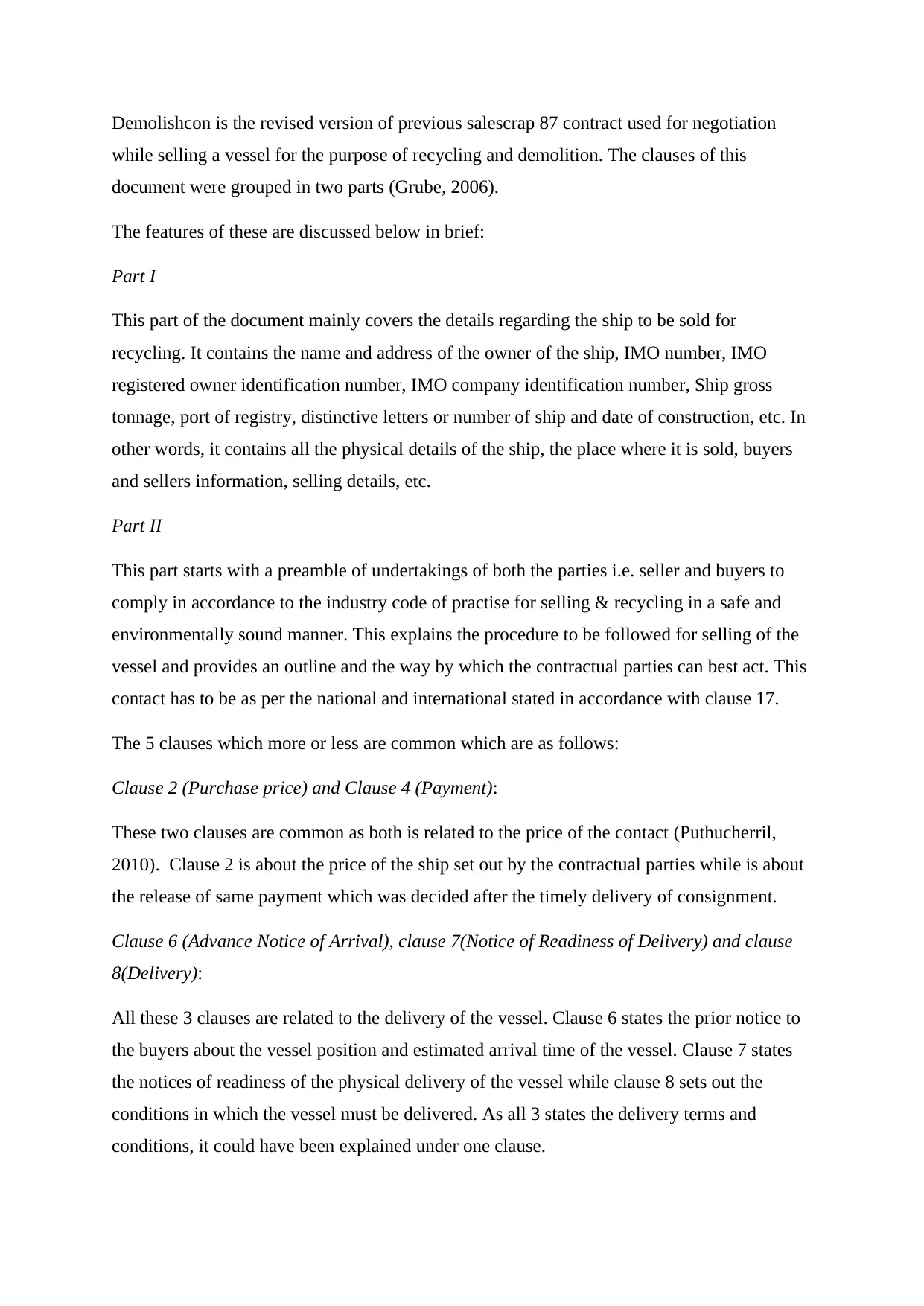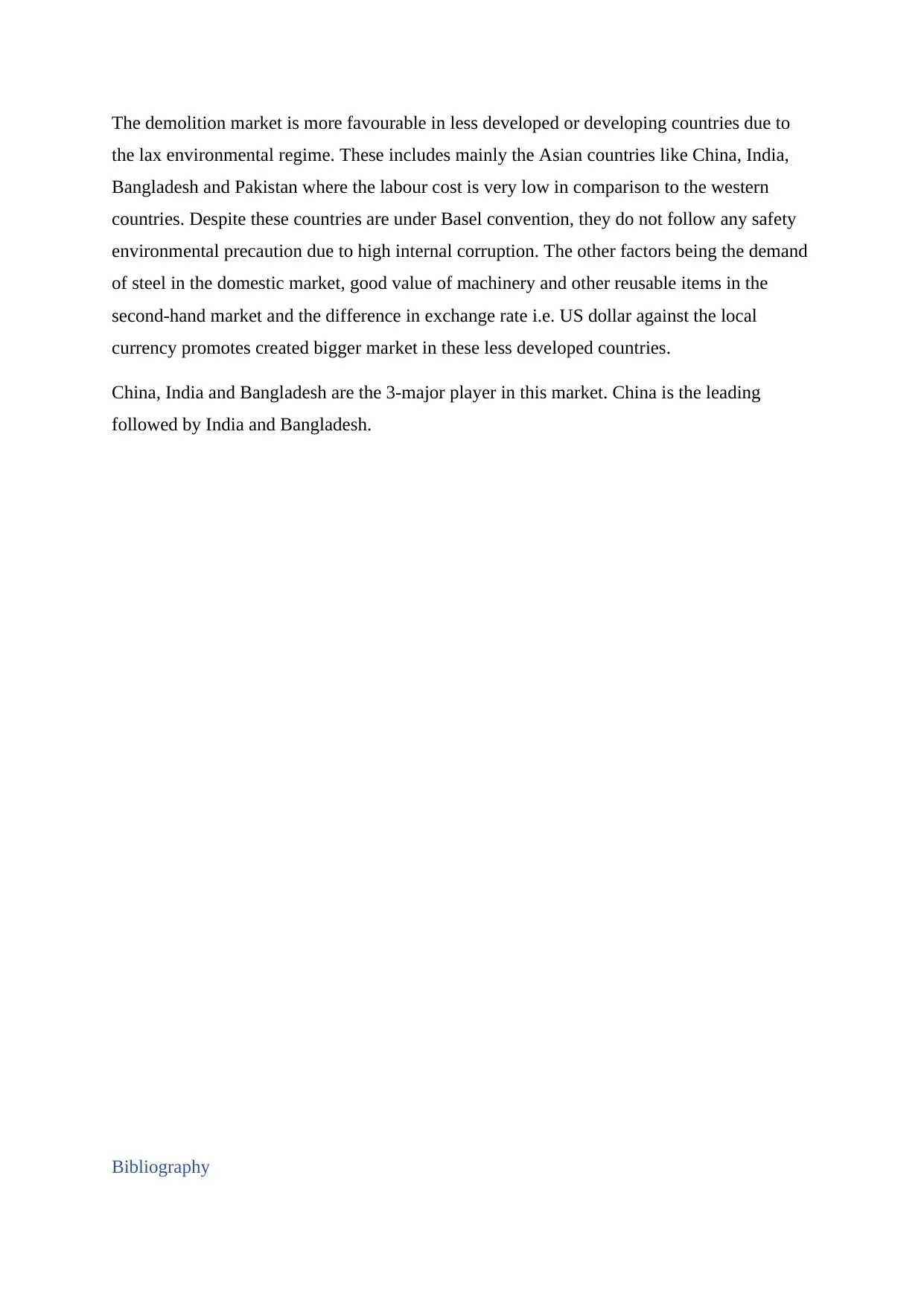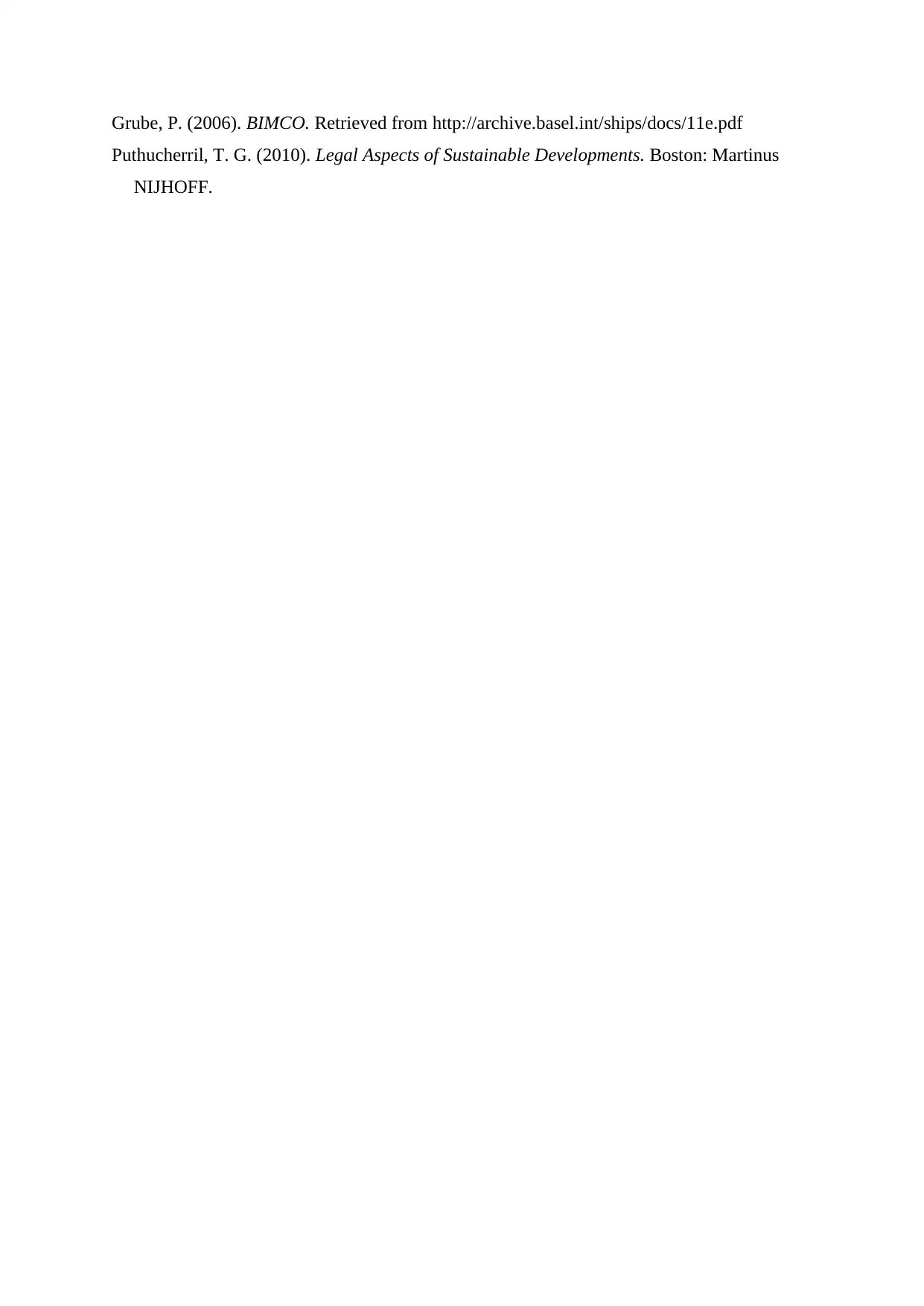Detailed Analysis of the Demolishcon Contract for Ship Recycling
VerifiedAdded on 2020/04/21
|3
|600
|106
Report
AI Summary
This report provides an analysis of the Demolishcon contract, a revised version of the sales contract used for ship recycling. The contract is divided into two parts: Part I covers the ship's physical details, sale location, and buyer/seller information. Part II outlines the commitments of both parties to adhere to industry standards for safe and environmentally sound recycling. The report discusses key clauses, including those related to purchase price, payment, advance notice of arrival, readiness of delivery, and delivery terms. It also explores the global landscape of ship recycling, highlighting the dominance of developing countries like China, India, and Bangladesh due to factors such as lower labor costs, demand for steel, and favorable exchange rates. The report references relevant literature, including works by Grube (2006) and Puthucherril (2010), to support the analysis and provide context for the contractual and industry practices.
1 out of 3





![[object Object]](/_next/static/media/star-bottom.7253800d.svg)